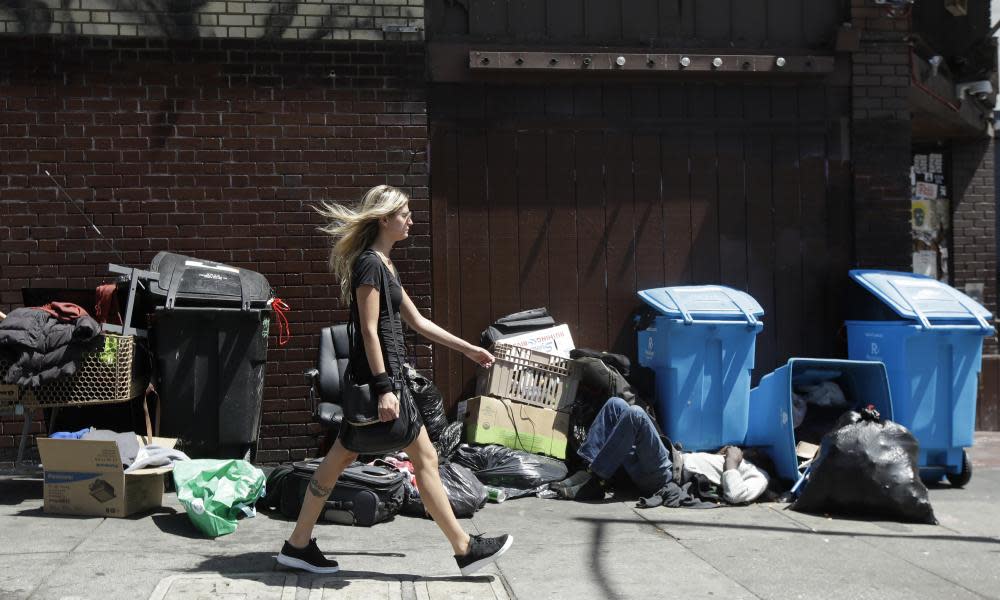Abolish Silicon Valley by Wendy Liu review – rebooting our reality

A month ago, when I began reading Wendy Liu’s polemic, I felt inclined to dismiss her as a millennial flibbertigibbet, motivated by a grudge against an industry that seemingly had no use for her. Liu grew up as a computing whiz-kid in Montreal and moved to San Francisco to develop software that aspired, a little tackily, to be “Tinder for advertisers”. When her entrepreneurial scheme fizzled out she transferred to the London School of Economics to study inequality, which turned her into an evangelising radical. In her book, she attacks the depressing doctrine of “capitalist realism” and its assumption that our current social and economic arrangements are unchangeable; with born-again zeal, she chastises her own “petty and narcissistic” nature and even laments “the tragedy of the human condition”. A bit excessive, surely, as a response to the failure of a startup?
But as I read on, everything changed. We now have good reason to question the pursuits of the vaunted innovators with whom Liu consorted in California – the blissed-out cultists at Google, whose only worry is over “the wrong kind of sparkling water in the microkitchens”, or the manic experts who specialise in “envisioning hyperplanes in n-dimensional space”. As Liu came to see, techies like these were already living extraterrestrially, having opted out of the earthly, bodily necessities that currently weigh us down. A colleague of hers said he would happily volunteer to join Elon Musk’s projected colony on Mars, the “backup” planet for menaced humanity. “You know you can never come back,” warned another of Liu’s friends. “I’d work remotely,” grinned the would-be Martian.
I ended up sharing her outrage, and wondering whether her prescription for a revolution might not go far enough
Anecdotes like this made me understand Liu’s disenchantment with her fellow programmers, and by the time I finished the book, my irritation about her own West Coast fads – her partiality for rides on Lyft scooters, her meals of quinoa washed down with kombucha – seemed trivial, or perhaps petty and narcissistic. I ended up admiring her idealism, sharing her outrage, and wondering whether her prescription for a revolutionary upheaval might not go far enough.
Her agenda is not only political. She thought of her work in Silicon Valley as “a stepladder to a higher plane of existence” – a cosmological undertaking, even a religious quest. In Einstein’s day, the pioneers of the new physics thought they were engaged in “world-building”; Liu similarly remarks that designing a website opens a hole in the universe through which we can study its inner mechanics. Her experiments in coding would, she believed, confer on her “a kind of immortality”.
What prompted her self-reappraisal was the need to step over homeless sleepers on the streets outside San Francisco’s glassy, gleaming corporate palaces. Soon afterwards it dawned on her that all those abstract trips on hyperplanes were only of value to investors if they served as market research: the purpose of algorithms is to track and to reinforce our performance as consumers.
Then came the election of Trump, Liu’s realisation that her collaborators regarded data as just “something to trade”, and her penitent retreat to LSE. Now she calls for “open protocols and decentralised services”, and wants secretive competition between developers to be replaced by “democratic oversight and open collaboration”. Liu’s blueprint for a “socialist media system” may still sound impractical, but her emphasis on public space and the public good have an eerie resonance at present: who knows what changes might come when we creep out of our enforced solitude and reconstitute a functioning society? A German hackathon in late March, when 43,000 participants joined forces online to discuss ways of outwitting coronavirus, may be exactly what she had in mind.
As Liu reviews her tech-obsessed adolescence, she describes a life spent in Plato’s cave, that recess of illusion where people turn away from sunlit reality and amuse themselves by watching shadows cast on the wall by the fire they have kindled. She sees her youthful self as “a solitary figure lit by the weary flicker of an LCD screen”, and admits that she disparaged her young contemporaries – less driven, therefore less worthy – who spent their time at play “out in the sunshine”.
Gradually, as Liu’s values alter, a lyrical appreciation of the nature she ignored enters her book: she notices how the “icy air” of the Montreal winter “bit like pinpricks” to make “every breath sharp”, and she watches enraptured as the sun dissolves feathery wisps of fog that curl under the Bay Bridge in San Francisco.
Before the revolution there has to be a reawakening, or a resuscitation, and this happens here as Liu begins to live in her body rather than her digitised head. The metaphorical blue-sky thinking recommended by startup accelerators in Silicon Valley is no substitute for the blue sky itself, which will go on shining whether we are here to look at it or not.
• Abolish Silicon Valley: How to Liberate Technology from Capitalism by Wendy Liu is published by Repeater Books (£10.99)


